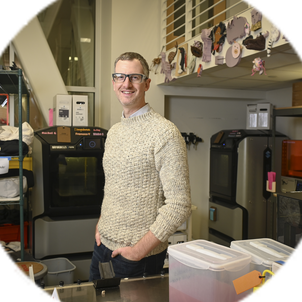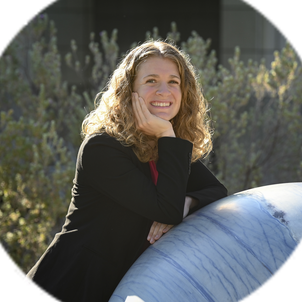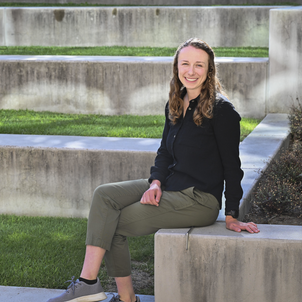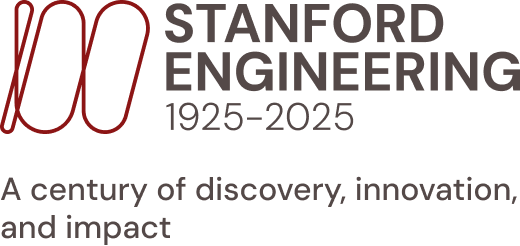My perception changed when I began tutoring other undergraduates at Northeastern University as part of a program led primarily by women that included statistical research on student retention and what factors impacted women in STEM. Our findings showed, among other things, that very often male students were not confident in the abilities of female professors, and female students often believed they were performing poorly even when they were getting top grades. It was pretty shocking and disheartening. I decided to use this experience to try and help people in STEM who were facing not only these particular challenges, but others including race- and gender preference-based barriers.
I now have two passions: addressing the impacts of climate change and helping improve the inequities in STEM education. As part of the Chueh Group, I work to understand the electrochemical interfaces at play in next-generation solid-state batteries. Much of our greenhouse gas emissions come from transportation alone, so being able to electrify our vehicles with renewably generated power is, I think, critical for our survival on Earth. Solid-state batteries are projected to be safer and more efficient than lithium-ion batteries for use in vehicles, but we see poor performance in many cases. My work is fundamental; I’m trying to find out what’s going wrong, not necessarily how to make something right. It’s only by really digging down into why something is failing that you can provide solutions that are relevant to industry and that can be created and iterated quickly.
I’ve been involved in a number of initiatives here at Stanford to improve equity in STEM education, including helping to develop a new speaker series, and working to update our existing colloquium series to bring new, more diverse voices to the School of Engineering. I also pushed for the addition of an ethics course (MATSCI 232: Ethics and Broader Impacts in Materials Science), which was developed by Professor Andrew Mannix. In our training as scientists, we encounter traditional topics of ethics – integrity in publishing, intellectual property, safety in design – but we often don’t consider the gray areas of the impacts of our research and our roles as leaders. In my own narrow field – energy storage materials for electric vehicles – there are abundant, complex ethical considerations. It may seem like a moral imperative to go all in on eco-friendly solutions like lithium-ion batteries for zero emission electric vehicles, for instance, but the extraction of key elements in these batteries, like cobalt and lithium, often results in devastating environmental effects for local populations, and unsafe job conditions and human rights violations for workers.
Ethical education is also critical to help understand our role as future leaders in our careers. Being able to manage interpersonal relations – dealing with power dynamics, keeping mentees engaged and motivated, handling complicated personal barriers different from our own – can have an even greater impact on progress than a scientist’s individual ability to think through tough problems. More importantly, a lack of these skills can be damaging to those around you. An untrained mentor who doesn’t know how to communicate with and motivate students who are different from themselves will only contribute to reducing the pipeline to academia for those from marginalized communities.
To me, there is always room to dive deeper into really difficult but important ethical questions that often don’t have clear answers. That process can be uncomfortable for scientists accustomed to solving problems, but it’s essential in order to train the equity-minded leaders and researchers of the future.
Related spotlights

Dan Somen

Sonia Martin


